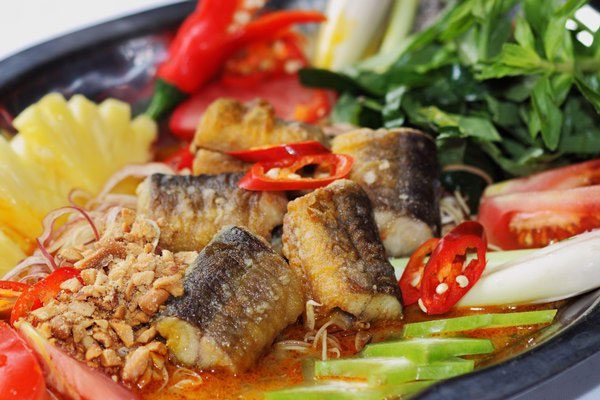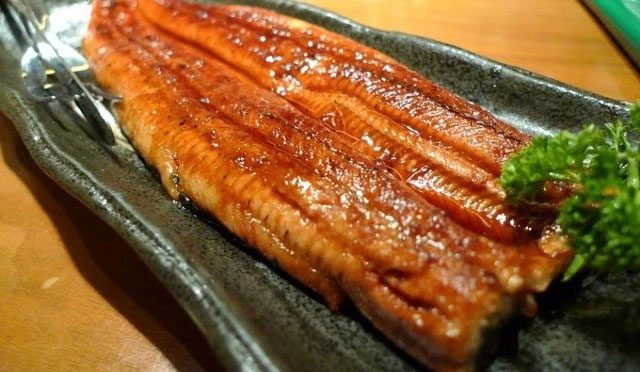Eel is a nutritious food, but individuals with gout, high cholesterol, or children with a history of allergies should avoid it to prevent health risks.
Dr. Huỳnh Tấn Vũ from the Day Treatment Unit at Ho Chi Minh City University of Medicine and Pharmacy – Campus 3, stated that eel is a popular seafood in Vietnam, which can be prepared in various dishes such as porridge, vermicelli, hot pot, eel braised with bananas, soup, stir-fried with lemongrass and chili, grilled, and more.
Benefits of Eel Meat
Eel meat is highly nutritious, containing many essential amino acids as well as numerous vitamins and minerals. Therefore, it is considered a food that offers significant health benefits.
Good for the brain: Eel meat has brain-enhancing properties, improving cognitive function and potentially reducing the risk of memory loss. This seafood is low in saturated fat, making it an ideal food for patients with diabetes and cardiovascular issues. It also helps nourish the blood, preventing iron deficiency anemia.

Eel meat is a precious food, rich in nutrients and delicious.
At the same time, eel also provides health benefits for women such as reducing wrinkles, improving skin health, and nourishing hair and nails due to its high collagen content. The protein in eel meat aids in the repair and regeneration of skin cells. Thus, this seafood is considered a great food for individuals suffering from acne, eczema, and psoriasis. Additionally, the arginine found in eel meat plays an important role in inhibiting the growth of breast cancer cells.
Blood nourishment: Eel meat is very rich in iron, which helps produce sufficient healthy red blood cells, preventing anemia. Studies show that consuming 125 grams of eel meat daily can provide 25mg of iron to the body. Women are particularly prone to anemia due to monthly menstruation, so incorporating eel into meals will boost iron, B12, and folate levels, aiding in the production of healthy red blood cells and thus preventing blood-related diseases.
Good for bones and joints: Eel meat is rich in phosphorus – an essential mineral for the development of bones, teeth, heart, brain, and plays a role in promoting growth, repairing tissues, and other body parts to generate energy and strength. In the body, phosphorus exists in the form of calcium phosphate crystals in bones and teeth, helping to strengthen them and prevent osteoporosis.
Liver health: In addition to lowering blood sugar levels and nourishing the blood, eel meat is a rich source of vitamin A, which plays a vital role in reducing liver cell aging and enhancing liver function. Therefore, adding this meat to your diet is a way to promote liver health every day.

Eel meat is very rich in iron, helping to produce sufficient healthy red blood cells.
Who Should Avoid Eating Eel Meat?
While eel is a precious, nutritious, and delicious food, Dr. Vũ advises that not everyone should supplement their diet with this food.
Eel is a high-protein food, and individuals with gout may experience worsening symptoms if they consume it. Therefore, this group should avoid eel meat.
Individuals with high cholesterol can eat this food but should limit their consumption of fried or stir-fried preparations, opting instead for steaming, boiling, making porridge, or grilling…
Children over one year old can also consume dishes made from eel meat. However, it is important not to overfeed them as this seafood can cause allergies to a certain extent. Children with a history of allergies should be particularly cautious when eating eel. Parents should start with a small amount on the first try and monitor for any allergic reactions to respond promptly.
Dr. Vũ recommends that eel must be thoroughly cooked before consumption. Additionally, people should choose fresh and safe ingredients to ensure their health.


















































